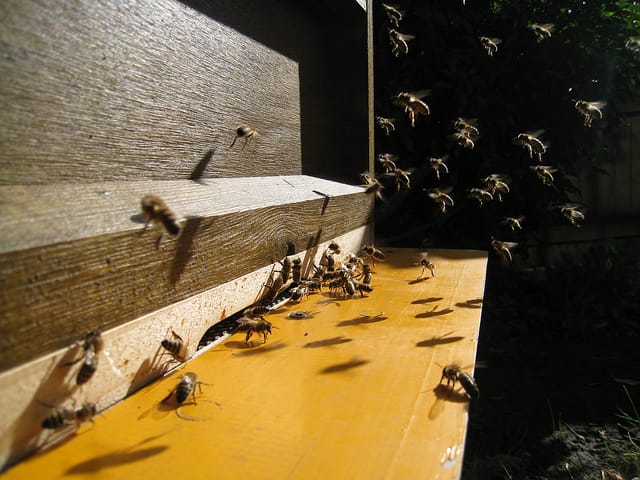Cornucopia’s Take: Beekeepers in North Dakota and Minnesota claim that farmers’ move towards corn and soy, along with a decrease in conservation land, leaves bees without pollen. Cornucopia supports organic and sustainable farms, recognizing the far-reaching benefits of working with nature.
Dakotas’ honeybee habitat shrinking with changing environment
The Bismarck Tribune
by Patrick Springer
 |
FARGO — Bob Morlock finds himself driving farther afield to tend his scattered beehives. He travels a circuit of several counties in southeastern North Dakota and Minnesota.
The reason for his far-flung bee colonies: Because of changes in farming, it’s getting more difficult to find suitable locations near fields with blossoming plants that provide pollen and nectar for his bees.
Instead of hay or alfalfa, more farmers are growing crops such as corn and soybeans, which are pesticide-intensive and don’t blossom. Beekeepers blame the loss of conservation acres on a lapsed federal program and the biofuels boom, where corn and soybeans are turned into ethanol or biodiesel.
“The farmers are just doing what they have to do,” said Morlock, who is based in Casselton and keeps more than 200 bee yards, or apiaries. “Agriculture has changed. Nobody raises cattle anymore.”

